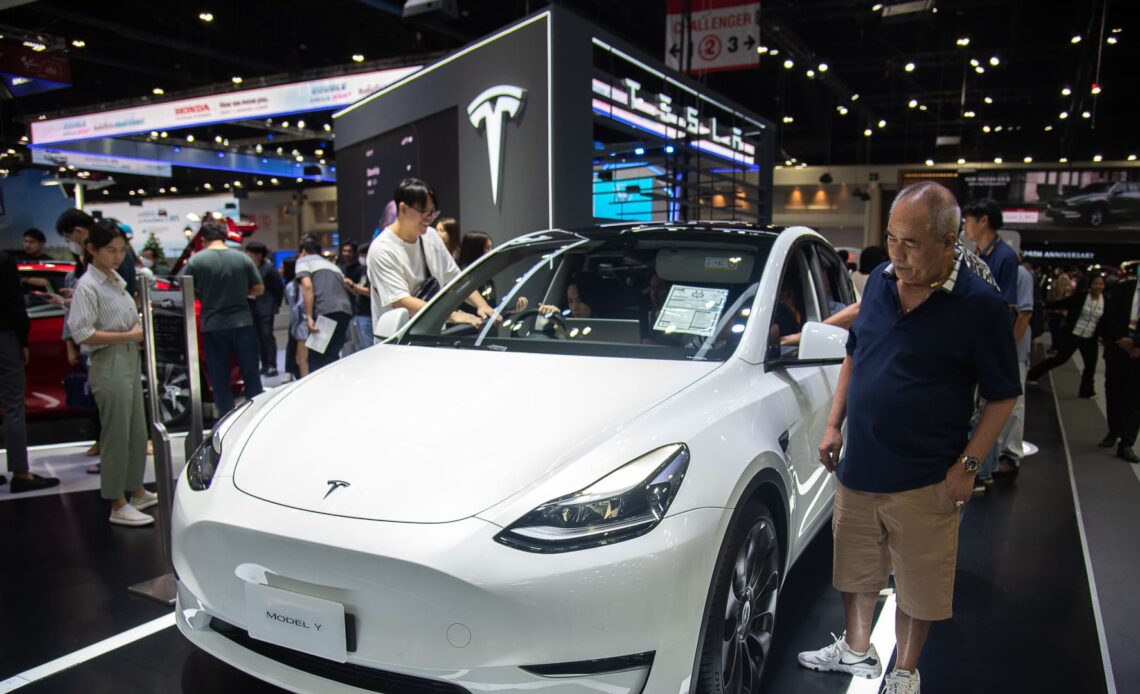Visitors inspect a Tesla Model Y car during the 40th Thailand International Motor Expo at the Impact Challenger hall in Nonthaburi.
Sopa Images | Lightrocket | Getty Images
Tesla has a lot going on. A significant slump in sales, stoking concerns among investors and industry analysts, in an EV market where aggressive price cuts have been needed to spur demand, have tied into decisions made by Elon Musk’s company to lay off workers and scale back spending on its EV Supercharger network. Tesla’s stock price has declined by over 30% this year.
Then, there’s the whole trade war with China, in which Musk holds a unique position.
The U.S. government is determined to limit China’s ability to, as it says, “flood” the U.S. market with renewable energy products, including its rapidly growing supply of EVs, with models priced as low as $10,000. But Tesla has a major operation in China, similar in some ways to Apple, a market key to both its manufacturing and consumer demand. That has all put Musk under considerable pressure to unlock new growth frontiers while navigating challenges of increased competition, supply chain disruptions, and rising raw material costs.
The EV giant appears is paying more attention to the vast potential of Asia beyond China, one of the hottest EV markets. In addition to its well-known interest in India, Tesla is taking a closer look at Thailand, the EV capital of Southeast Asia, where green mobility is rapidly gaining traction.
Thai government officials have touted talks with Tesla as Musk scouts locations for the next gigafactory — Thailand has been part of those deliberations for a few years, as has India, where Musk was scheduled to pay a recent visit before he canceled it, citing issues at Tesla that needed to be dealt with — he did pay a visit to China soon after. The Southeast Asia region, no doubt, holds the potential to provide Tesla with a sizeable customer base to diversify away from overreliance on Europe and the U.S., and a distinct option for manufacturing apart from its existing operations in China and interest in India.
Tesla did not respond to requests for comment.
‘The Detroit of Asia’
Thailand, known as the “Detroit of Asia” for many years already due to its skilled workforce and success attracting many international auto companies, can help Tesla to reduce its dependence on China. With a manufacturing base in Thailand, Tesla could also serve Asian markets and beyond, potentially replicating China’s rapid growth…
Click Here to Read the Full Original Article at Top News and Analysis (pro)…


